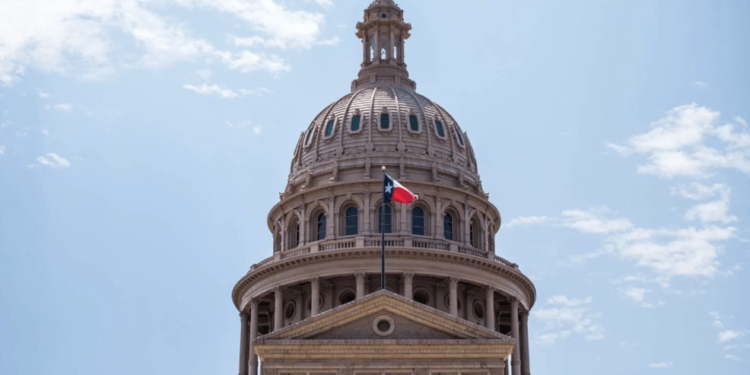Progress in Texas towards Legislation on Cryptocurrency Reserves
A noteworthy development is unfolding in Texas, with plans to potentially pioneer the establishment of a reserve consisting of Bitcoin and various other cryptocurrencies as legislation makes headway in the state Senate. Senator Charles Schwertner, R-Georgetown, has introduced Senate Bill 21, aiming to grant authority to the Texas Comptroller’s Office to oversee and maintain investments in Bitcoin and other digital currencies with a market capitalization exceeding $500 billion, a criterion currently fulfilled solely by Bitcoin.
Advocating for diversifying state assets, Senator Schwertner has underscored the significance of exploring alternatives to fiat currency, pointing out that fiat currency ultimately depreciates to its intrinsic value, merely the paper it is printed on. He stressed the importance for Texas to adapt to evolving economic landscapes, particularly noting Bitcoin’s robust performance over the last decade.
The bill, endorsed by Lieutenant Governor Dan Patrick, is currently under review by the Senate Business and Commerce Committee. Given the bill’s prioritization and the Republican majority, it is expected to proceed smoothly through the legislative process.
Several states are contemplating similar legislative actions with the increasing popularity of digital currencies, especially in light of heightened federal attention. Figures such as Elon Musk, a prominent advocate for cryptocurrencies during the Trump administration, are driving this movement. The proposed bill would authorize the Comptroller to manage Bitcoin reserves sanctioned by the state legislature and also accept donations compliant with Texas laws concerning gifts.
Conversely, concerns arose during legislative deliberations regarding the influence of affluent tech entrepreneurs on governance. Senator Nathan Johnson, D-Dallas, voiced reservations, expressing unease about billionaire tech luminaries controlling branches of government. Additionally, Texas Comptroller Glenn Hegar expressed personal hesitations regarding corporate contributions, although he did not outright reject the possibility of receiving substantial donations.
While Governor Greg Abbott has not specifically addressed this particular legislation, he has previously conveyed ambitions for Texas to lead in the cryptocurrency arena. In a recent social media declaration, Abbott stated, “this session Texas should become the crypto capital.” Notably, earlier this year, Patrick had suggested increased regulation of data and cryptocurrency mining sectors due to concerns about their impact on the state’s energy grid.
To summarize, Texas stands at the brink of significant advancement in integrating cryptocurrencies into its financial framework through Senate Bill 21. If enacted, this legislation would position Texas as a front-runner in cryptocurrency adoption among U.S. states, prompting discussions on the broader ramifications of decreased reliance on fiat currency. As the legislative process unfolds, proponents and critics will keenly observe the unfolding events, which could have profound implications for the state’s economic structure and governance.








